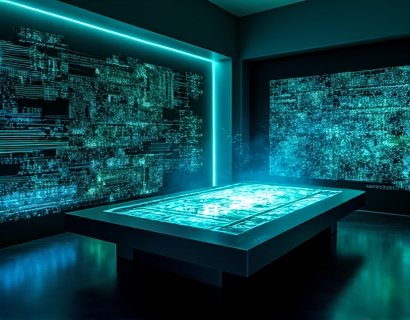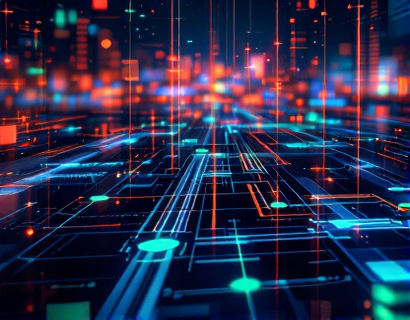AI-Driven Exploration of Egyptian Heritage: Insights and Authentic Artifact Shopping Experience
The ancient civilization of Egypt, with its profound history and cultural richness, continues to captivate the imagination of people around the globe. From the majestic pyramids of Giza to the intricate hieroglyphs that tell stories of pharaohs and gods, Egypt's heritage is a treasure trove of knowledge and beauty. In recent years, the integration of artificial intelligence (AI) has opened new avenues for exploring and understanding this ancient culture, offering both enthusiasts and casual learners a more immersive and personalized experience. This article delves into how AI-driven insights and a curated selection of authentic artifacts can enhance your journey into the heart of Egyptian heritage, providing a unique blend of historical knowledge and shopping.
AI-Driven Insights into Egyptian History
The application of AI in studying Egyptian history has revolutionized the way we access and interpret ancient data. Machine learning algorithms can analyze vast amounts of textual and visual data, identifying patterns and connections that might elude human researchers. For instance, AI can help decipher hieroglyphs with greater accuracy and speed, translating texts that have remained undeciphered for centuries. This technology not only aids scholars but also makes historical knowledge more accessible to the general public through interactive platforms and educational tools.
One of the most significant contributions of AI in this field is the creation of detailed digital reconstructions of historical sites. Using data from archaeological excavations and satellite imagery, AI can generate 3D models of ancient cities, temples, and tombs. These virtual reconstructions allow users to explore these sites as they existed thousands of years ago, providing a deeper understanding of the architectural and engineering prowess of the ancient Egyptians. Such immersive experiences are invaluable for both educational purposes and personal enrichment.
Enhancing the Shopping Experience with AI
The intersection of AI and the world of artifacts offers a unique shopping experience that goes beyond mere transactional interactions. By leveraging AI, platforms can curate collections of authentic Egyptian artifacts that are not only historically significant but also resonate with individual interests and preferences. AI algorithms analyze user behavior, search history, and feedback to recommend items that align with their tastes, ensuring a personalized and satisfying shopping experience.
Moreover, AI can verify the authenticity of artifacts through advanced image recognition and pattern analysis. This technology helps in authenticating items by comparing them with known examples and detecting any signs of forgery. Buyers can thus trust that the artifacts they purchase are genuine, adding a layer of security and confidence to the shopping process. This level of authenticity is crucial for collectors and enthusiasts who value the historical and cultural significance of the items they acquire.
Curated Collections of Authentic Artifacts
The selection of artifacts available through AI-driven platforms is meticulously curated to reflect the diversity and richness of Egyptian heritage. From delicate jewelry and pottery to grand sculptures and religious relics, each item tells a story of the civilization that created it. The curation process involves collaboration with historians, archaeologists, and conservators to ensure that the artifacts are not only authentic but also presented in a context that highlights their historical importance.
For instance, a collection might feature a range of amulets, each with its own unique symbolism and purpose in ancient Egyptian society. These amulets, often made from gold, lapis lazuli, and other precious materials, were believed to offer protection and good fortune to the wearer. Through AI-driven descriptions and historical insights, buyers can gain a deeper appreciation of these artifacts, understanding their role in daily life and religious practices.
Personalized Learning and Discovery
One of the most compelling aspects of using AI to explore Egyptian heritage is the personalized learning experience it offers. Users can engage with content at their own pace, delving deeper into topics that interest them most. AI-driven platforms can create customized learning paths based on individual preferences, providing a tailored journey through Egypt's ancient past.
Interactive features such as quizzes, virtual tours, and augmented reality (AR) experiences further enhance this personalized approach. For example, users can point their smartphones at a physical artifact and instantly access detailed information, including its history, significance, and related stories. This blend of physical and digital interaction makes learning about Egyptian heritage both engaging and accessible.
Community and Shared Knowledge
AI-driven platforms also foster a sense of community among enthusiasts and learners. Users can connect with others who share their interests, participating in forums, discussions, and collaborative projects. This community aspect not only enriches the individual experience but also contributes to a collective understanding of Egyptian heritage. Users can share their findings, insights, and personal stories, creating a dynamic and supportive environment for learning and discovery.
Furthermore, AI can facilitate the translation and interpretation of ancient texts and inscriptions, breaking down language barriers and making historical knowledge more accessible to a global audience. This democratization of information ensures that people from diverse backgrounds can engage with and appreciate Egypt's rich cultural legacy.
Ethical Considerations and Preservation
While the integration of AI in exploring and sharing Egyptian heritage offers numerous benefits, it is essential to address ethical considerations and the preservation of cultural artifacts. AI technologies must be used responsibly, ensuring that the digital representations and reconstructions do not detract from the value and integrity of the original artifacts. Collaboration with museums, archaeological institutions, and local communities is crucial to ensure that these efforts respect and honor the cultural significance of the artifacts.
Additionally, AI can play a role in the preservation of physical artifacts by monitoring environmental conditions and detecting signs of deterioration. Machine learning algorithms can analyze data from sensors placed in storage and display areas, alerting conservators to potential issues before they become critical. This proactive approach helps in maintaining the artifacts in optimal conditions, ensuring their longevity for future generations.
Conclusion
In conclusion, the combination of AI-driven insights and a curated selection of authentic Egyptian artifacts offers a unique and enriching experience for those interested in exploring the ancient wonders of Egypt. This approach not only deepens our understanding of this fascinating civilization but also provides a meaningful way to connect with its legacy. Whether you are a history enthusiast, a cultural explorer, or simply someone with a curiosity for the past, this innovative blend of technology and heritage is sure to inspire and educate.











































